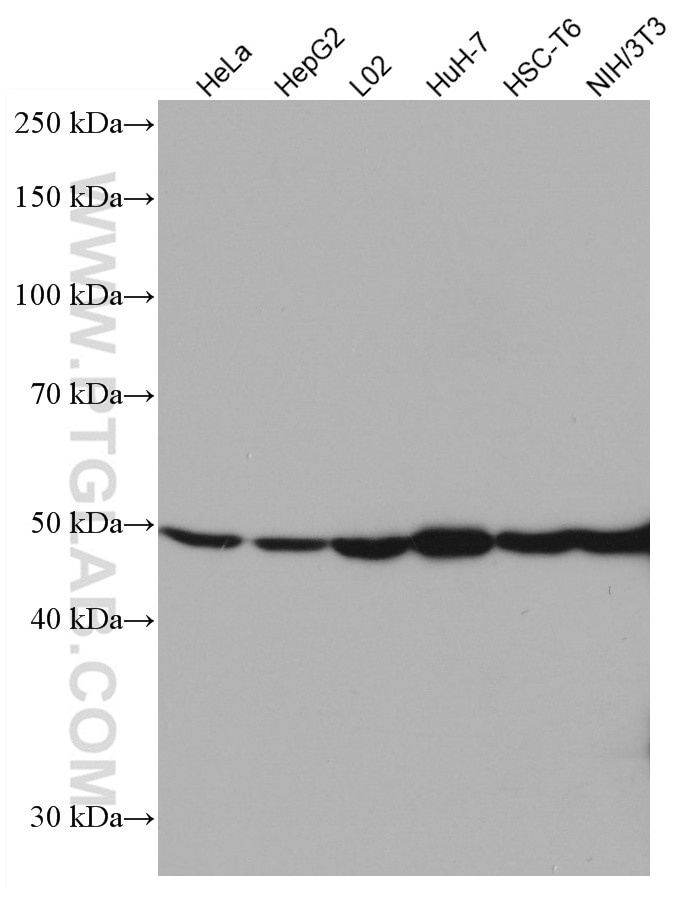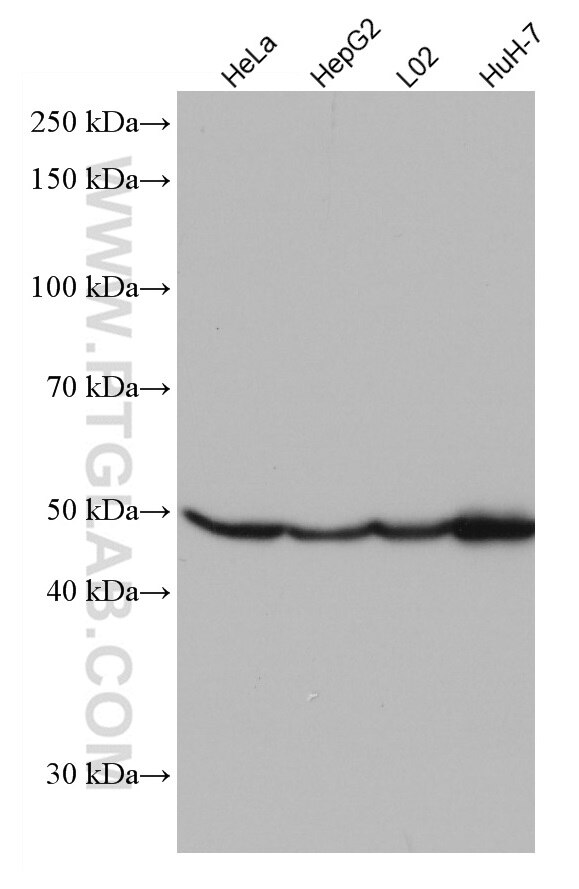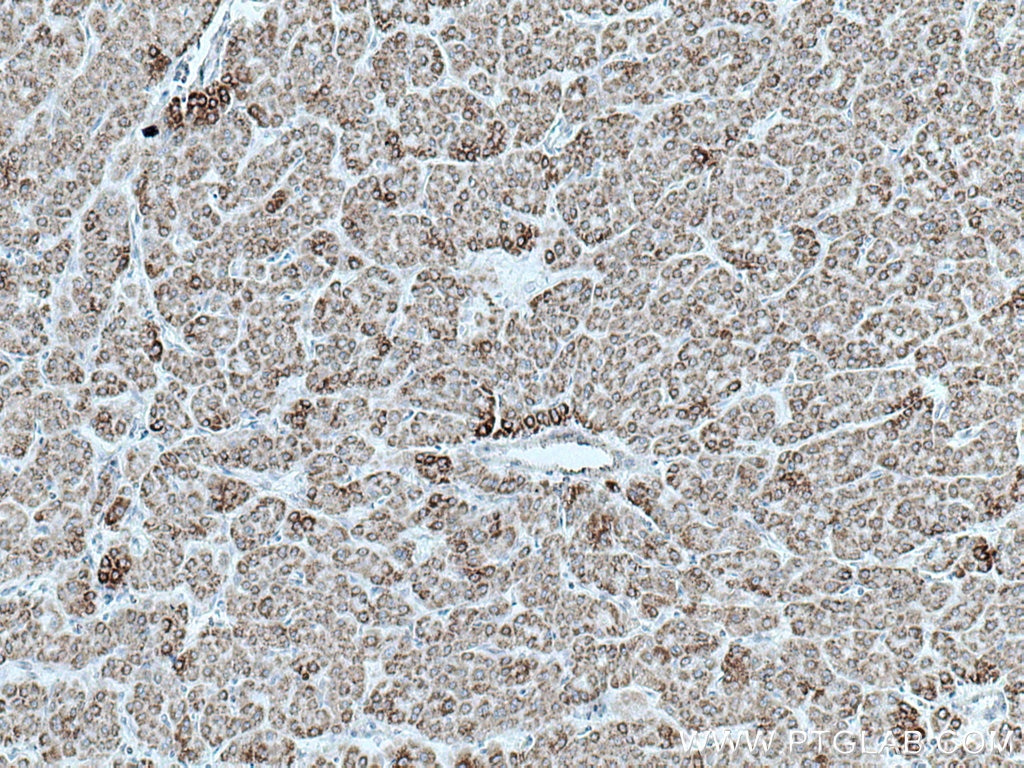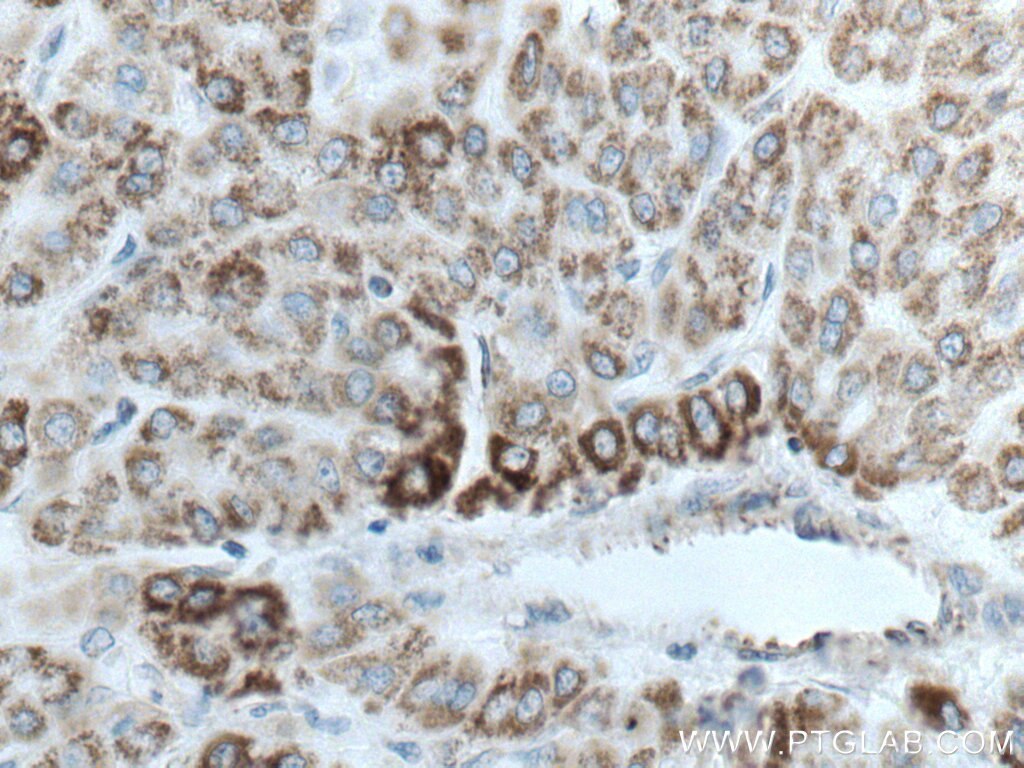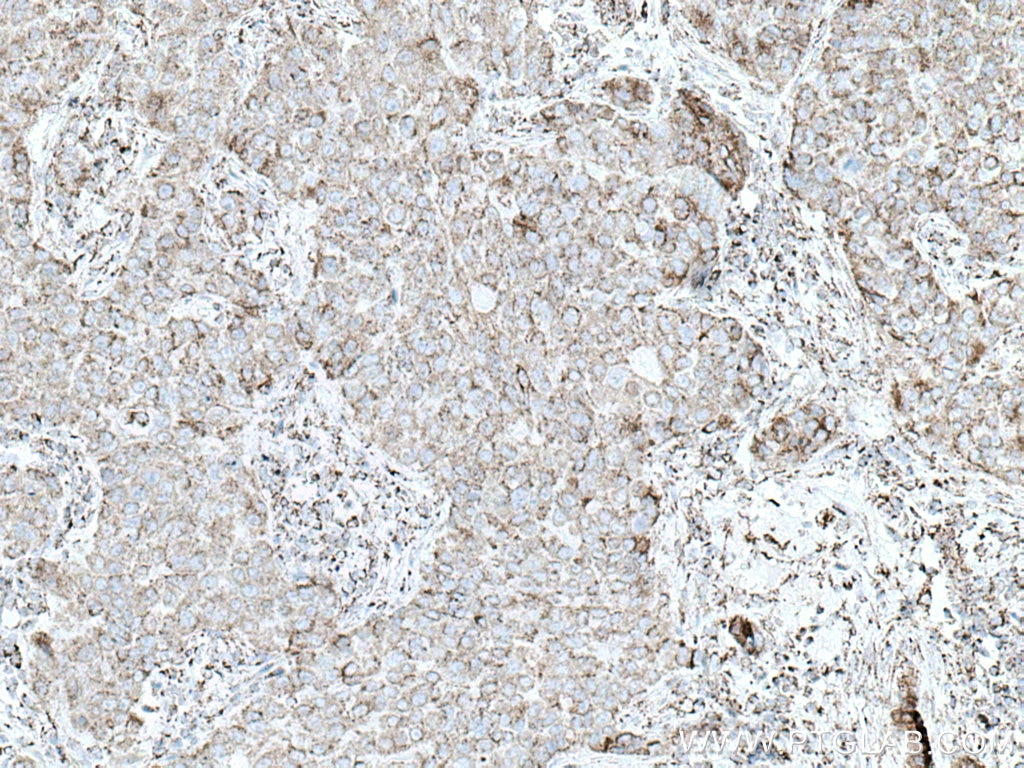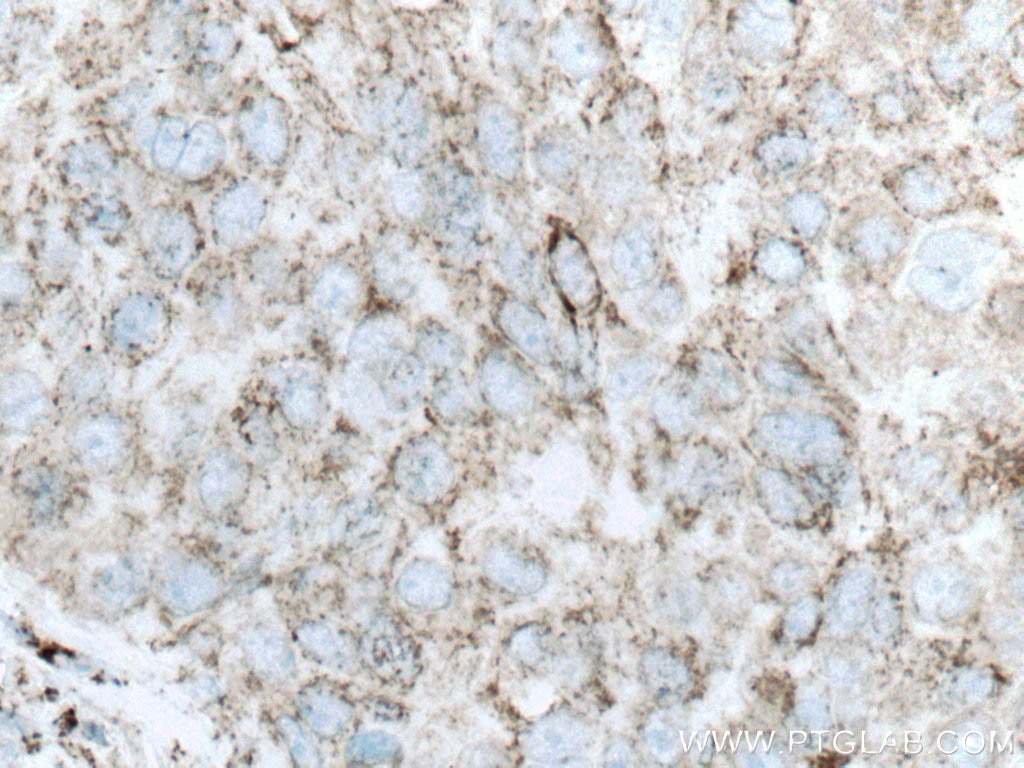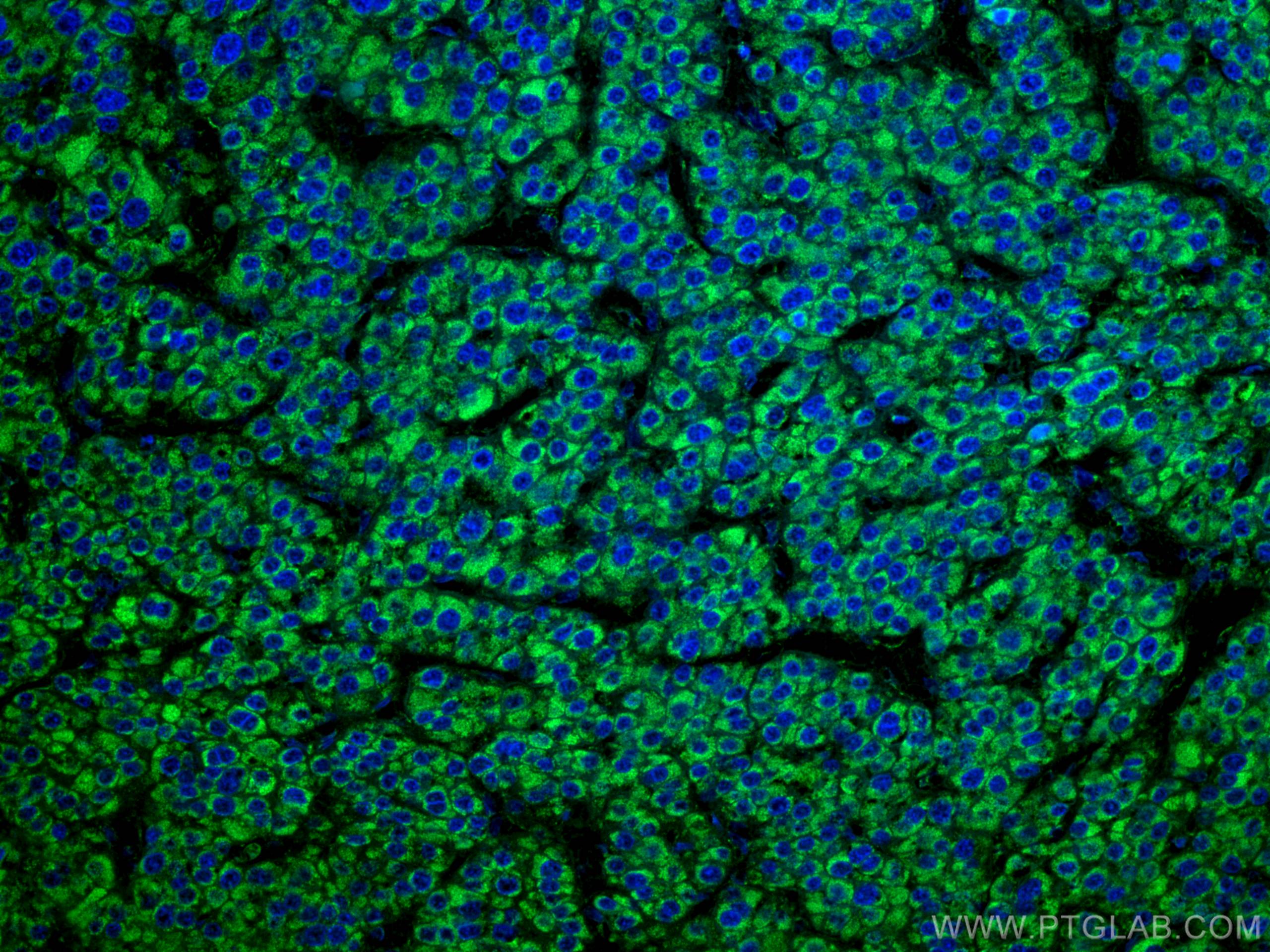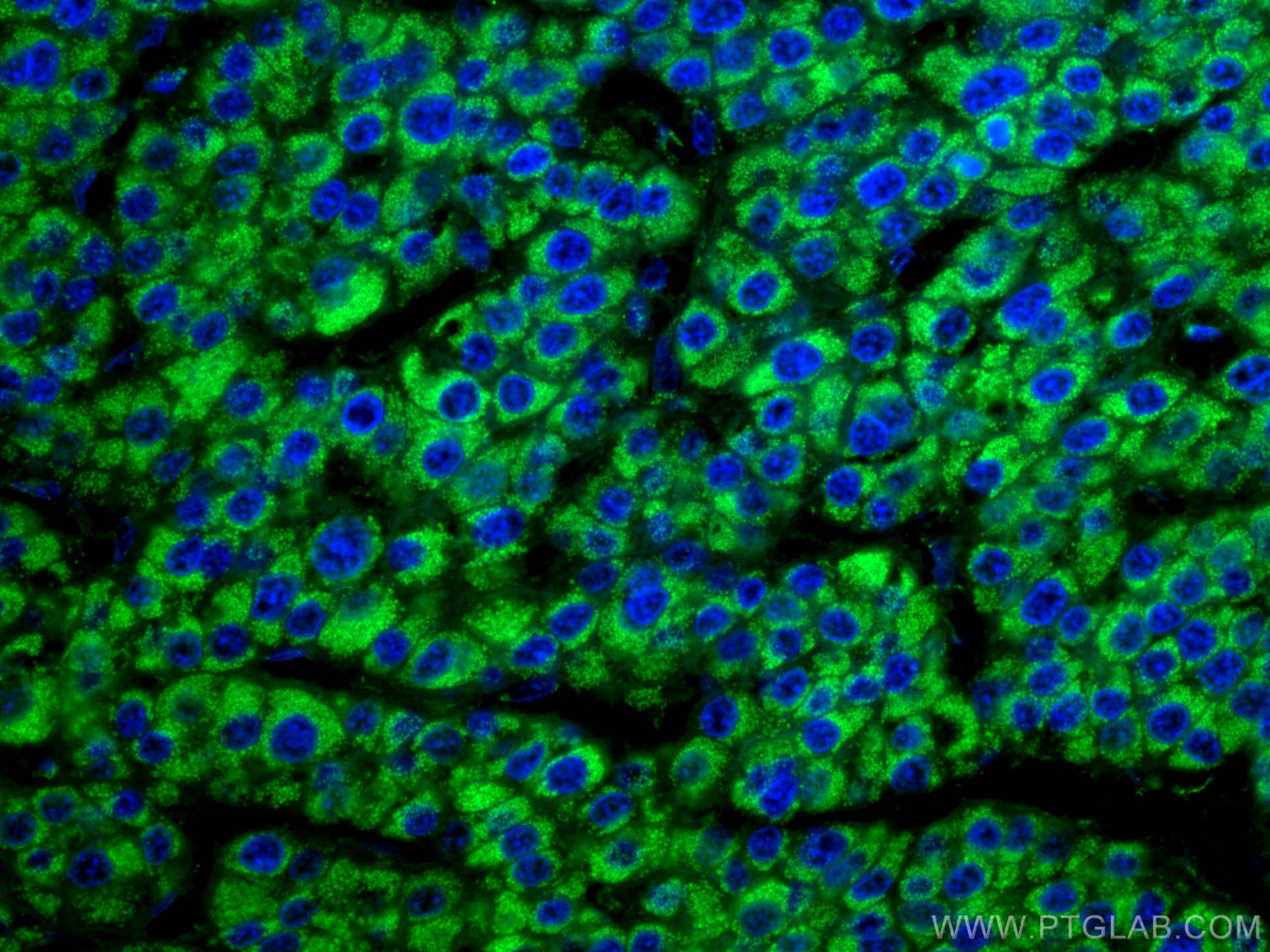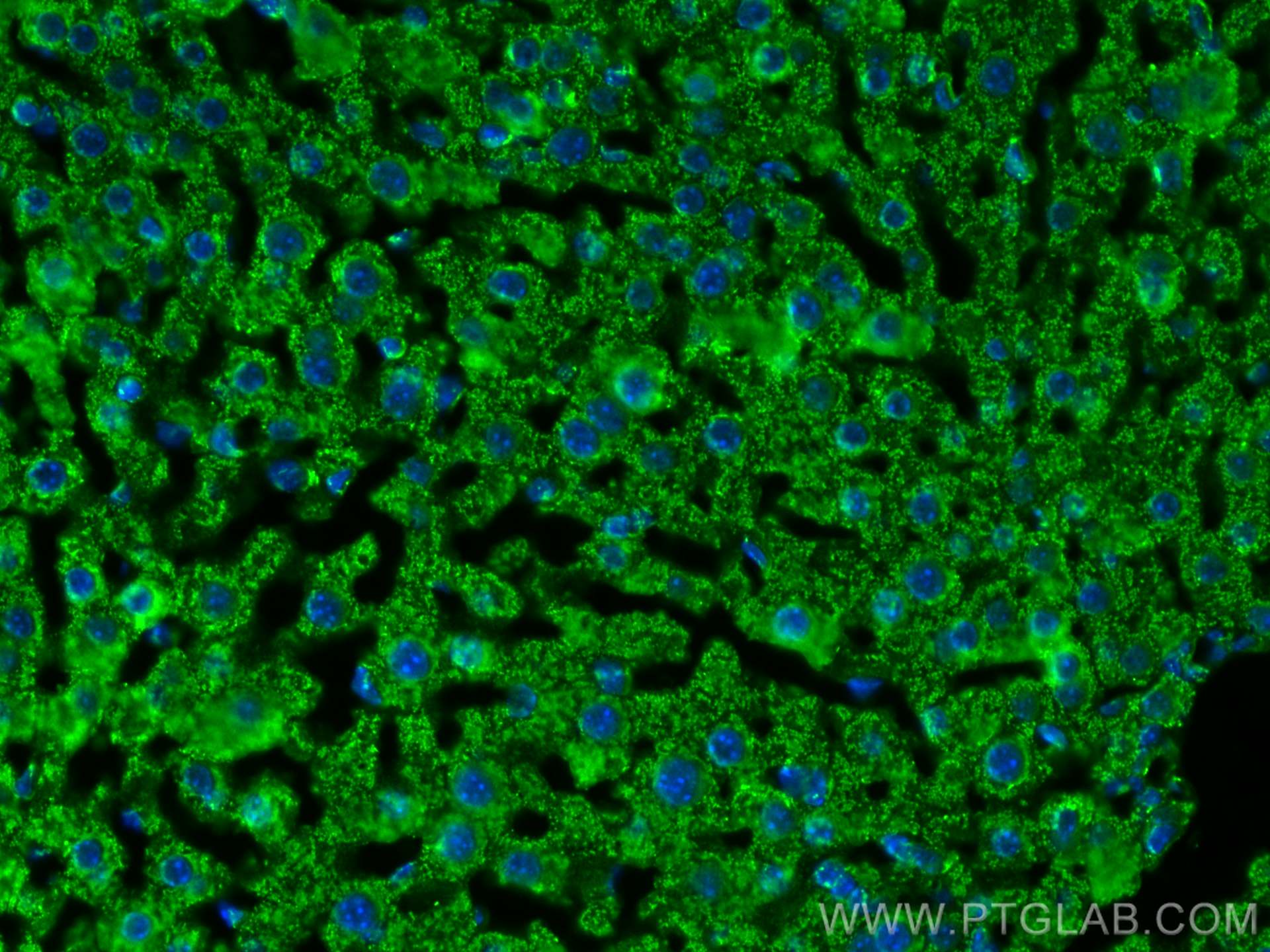GLUD1 Monoklonaler Antikörper
GLUD1 Monoklonal Antikörper für WB, IHC, IF-P, ELISA
Wirt / Isotyp
Maus / IgG2b
Getestete Reaktivität
human, Maus, Ratte
Anwendung
WB, IHC, IF-P, ELISA
Konjugation
Unkonjugiert
CloneNo.
4G10D3
Kat-Nr. : 67026-1-Ig
Synonyme
Geprüfte Anwendungen
| Erfolgreiche Detektion in WB | HeLa-Zellen, HepG2-Zellen, HuH-7-Zellen, L02-Zellen, NIH/3T3-Zellen |
| Erfolgreiche Detektion in IHC | humanes Leberkarzinomgewebe, humanes Mammakarzinomgewebe Hinweis: Antigendemaskierung mit TE-Puffer pH 9,0 empfohlen. (*) Wahlweise kann die Antigendemaskierung auch mit Citratpuffer pH 6,0 erfolgen. |
| Erfolgreiche Detektion in IF-P | humanes Leberkarzinomgewebe, Mauslebergewebe |
Empfohlene Verdünnung
| Anwendung | Verdünnung |
|---|---|
| Western Blot (WB) | WB : 1:5000-1:50000 |
| Immunhistochemie (IHC) | IHC : 1:500-1:2000 |
| Immunfluoreszenz (IF)-P | IF-P : 1:200-1:800 |
| It is recommended that this reagent should be titrated in each testing system to obtain optimal results. | |
| Sample-dependent, check data in validation data gallery | |
Veröffentlichte Anwendungen
| WB | See 3 publications below |
| IF | See 1 publications below |
Produktinformation
67026-1-Ig bindet in WB, IHC, IF-P, ELISA GLUD1 und zeigt Reaktivität mit human, Maus, Ratten
| Getestete Reaktivität | human, Maus, Ratte |
| In Publikationen genannte Reaktivität | human, Maus |
| Wirt / Isotyp | Maus / IgG2b |
| Klonalität | Monoklonal |
| Typ | Antikörper |
| Immunogen | GLUD1 fusion protein Ag6179 |
| Vollständiger Name | glutamate dehydrogenase 1 |
| Berechnetes Molekulargewicht | 61 kDa |
| Beobachtetes Molekulargewicht | 45-55 kDa |
| GenBank-Zugangsnummer | BC040132 |
| Gene symbol | GLUD1 |
| Gene ID (NCBI) | 2746 |
| Konjugation | Unkonjugiert |
| Form | Liquid |
| Reinigungsmethode | Protein-A-Reinigung |
| Lagerungspuffer | PBS with 0.02% sodium azide and 50% glycerol |
| Lagerungsbedingungen | Bei -20°C lagern. Nach dem Versand ein Jahr lang stabil Aliquotieren ist bei -20oC Lagerung nicht notwendig. 20ul Größen enthalten 0,1% BSA. |
Hintergrundinformationen
Human glutamate dehydrogenase (GDH), an enzyme central to the metabolism of glutamate, is known to exist in housekeeping and nerve tissue-specific isoforms encoded by the GLUD1 and GLUD2 genes, respectively. It catalyses the reversible inter-conversion of glutamate to alpha-ketoglutarate and ammonia, thus interconnecting amino acid and carbohydrate metabolism. GLUD1 might contribute to the formation of specific synapses in the hippocampus such as those formed by the projecting neurons of the entorhinal cortex(PMID: 22138648). GLUD1 has a calculated molecular mass of 61 kDa and an apparent molecular mass of 45-55 kDa with the 53aa transit peptide removed.
Protokolle
| PRODUKTSPEZIFISCHE PROTOKOLLE | |
|---|---|
| WB protocol for GLUD1 antibody 67026-1-Ig | Protokoll herunterladen |
| IHC protocol for GLUD1 antibody 67026-1-Ig | Protokoll herunterladenl |
| IF protocol for GLUD1 antibody 67026-1-Ig | Protokoll herunterladen |
| STANDARD-PROTOKOLLE | |
|---|---|
| Klicken Sie hier, um unsere Standardprotokolle anzuzeigen |
Publikationen
| Species | Application | Title |
|---|---|---|
Sci Transl Med Aberrant methylmalonylation underlies methylmalonic acidemia and is attenuated by an engineered sirtuin | ||
Cell Insight Deacetylation of GLUD1 maintains the survival of lung adenocarcinoma cells under glucose starvation by inhibiting autophagic cell death | ||
Inflammation Moxibustion Alleviates Inflammation via SIRT5-mediated Post-translational Modification and Macrophage Polarization |
